Ain Shams University witnesses the launch of the Fulbright Initiative for Inclusion and Accessibility for People with Disabilities
Ain Shams University organized a workshop, in cooperation with the Fulbright Authority for People of Determination, Faculty staff, the teaching assistants, students and university employees, to introduce them to the grants offered by the Authority and how to apply for them, in addition to a workshop on life skills, assistive technologies, and how to perform daily life independently.
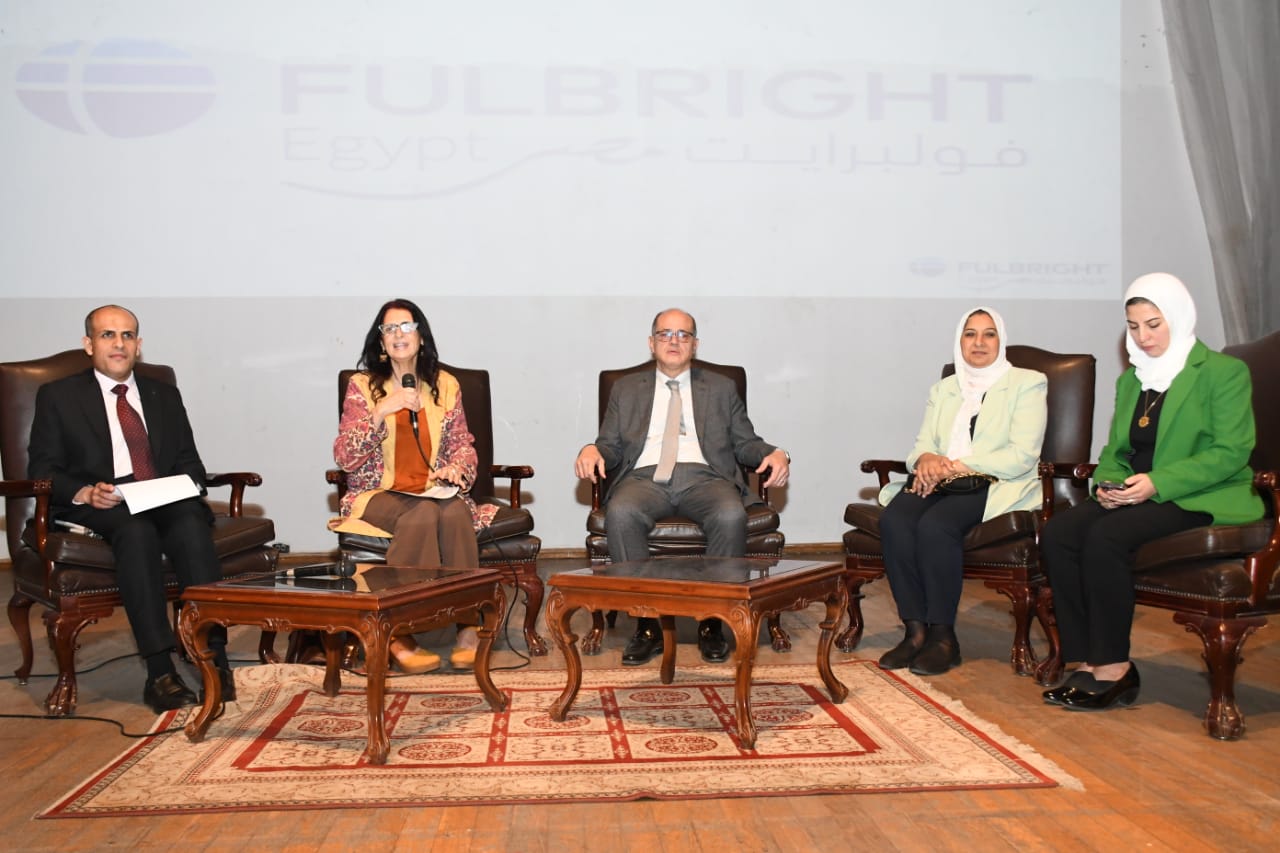 |
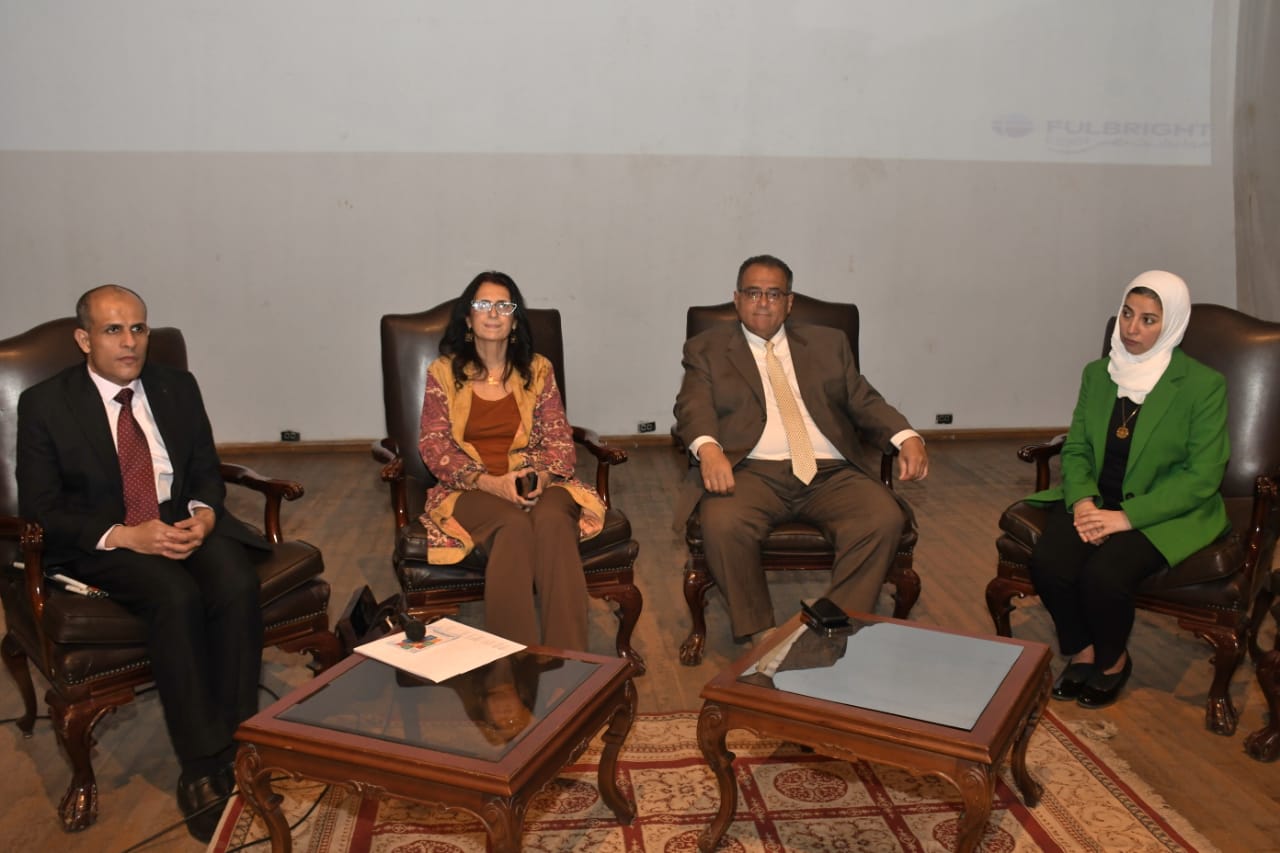 |
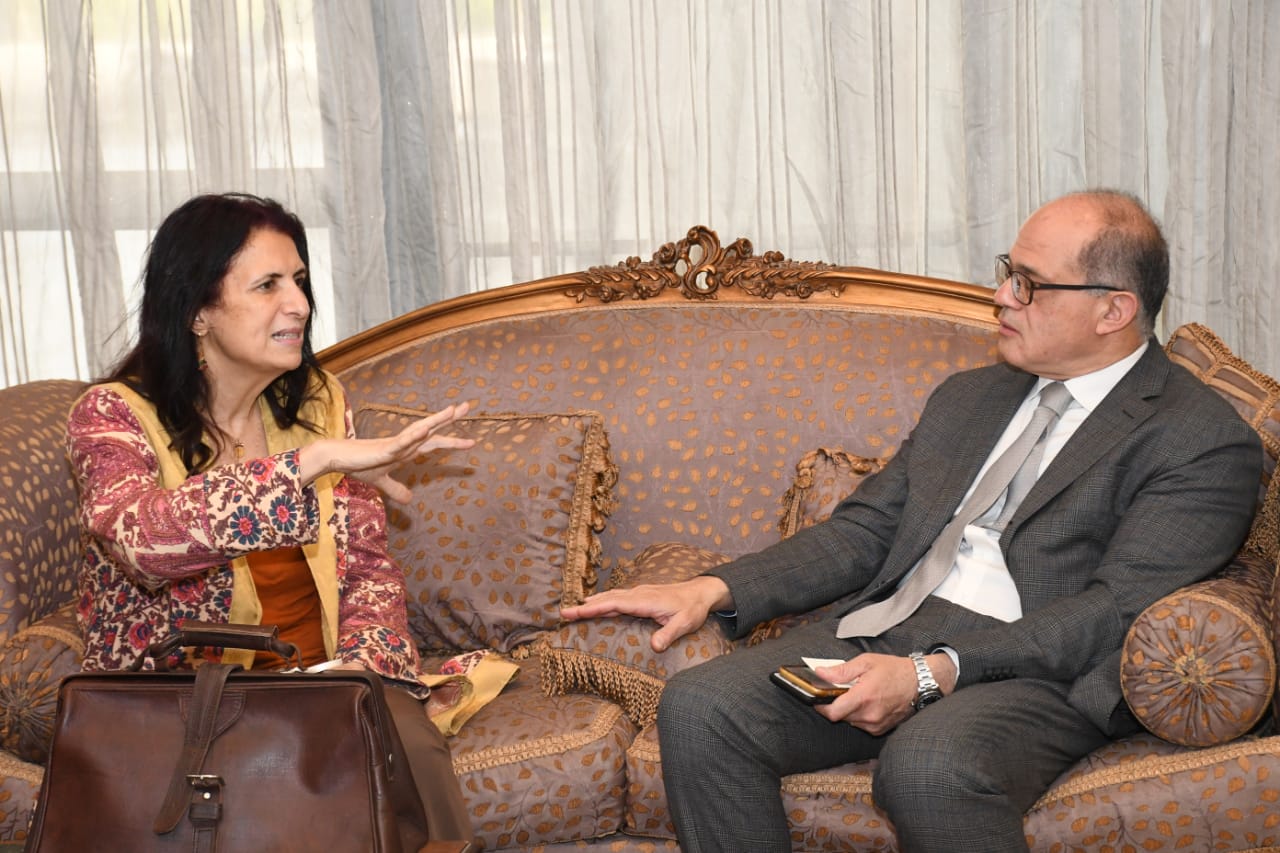 |
||
The meeting was witnessed by Prof. Abdel Fattah Saoud, Vice President for Education and Student Affairs, Prof. Ayman Saleh, Vice President for Graduate Studies and Research, Prof. Ghada Farouk, Vice President for Community Service and Environmental Development, Prof. Maguy Nassif, Executive Director of Fulbright Egypt, Prof. Rana Al-Hilali, Director of the Center for Students with Disabilities at the University, Dr. Ibrahim Emara, a teacher at Tanta University and advisor to the Commission for Merger Affairs, and Mr. Aser Hani, Assistant Director of Programs at the Fulbright Commission.
During the meeting, Prof. Abdel-Fattah Saoud, Vice President for Education and Student Affairs, confirmed that people with disabilities are really "capable of different things." Despite the difference in the nature of their lives from many people, they were able to overcome this difference and move forward.
He added that Ain Shams University provides all means of support for those who are able to differ, and is keen to know the feedback for the continuous development of the services provided to them, and the university is also keen to establish partnerships with local and international civil society organizations to serve people with disabilities.
His Excellency urged people of determination to learn languages so that they are eligible to benefit from the grants offered to them, calling on those present to set a goal in their eyes and strive to achieve it.
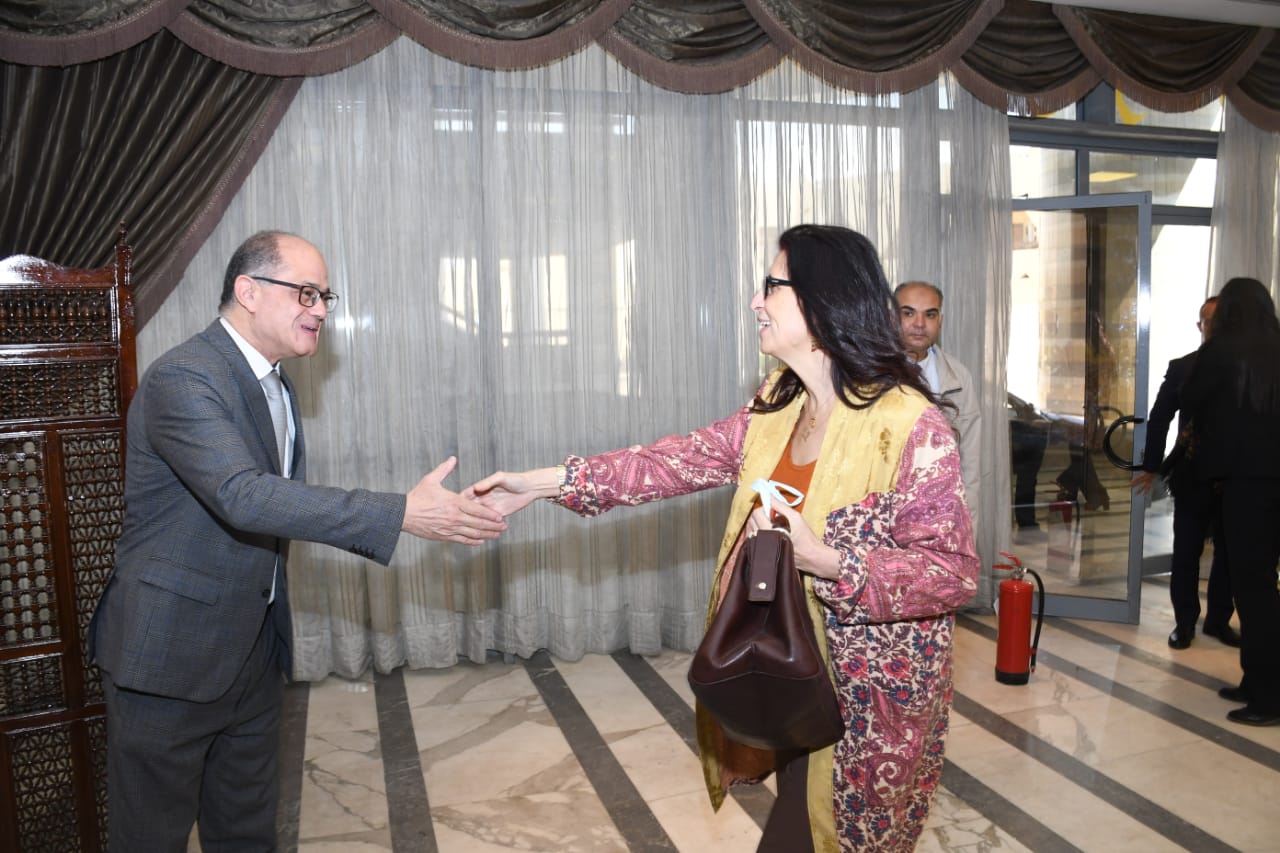 |
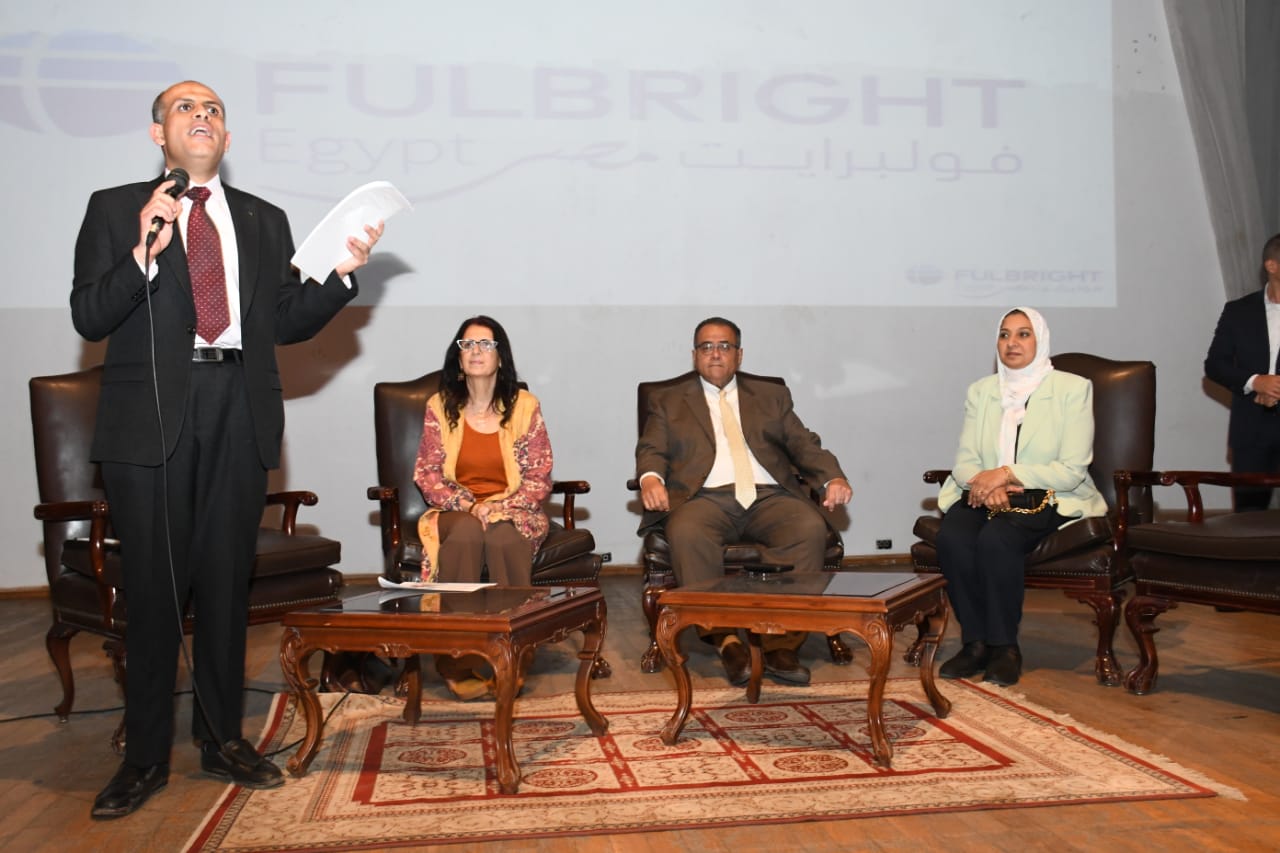 |
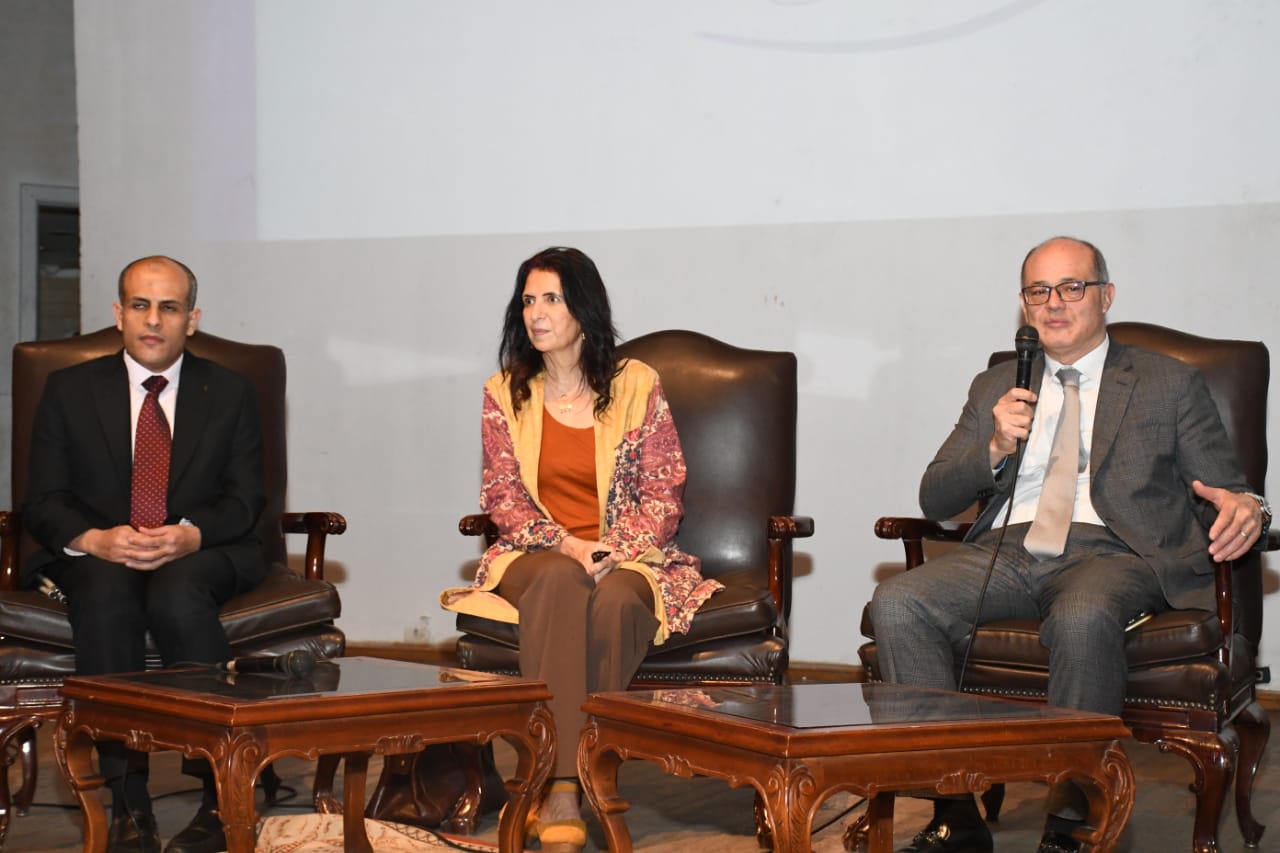 |
||
Prof. Ayman Saleh, Vice President for Postgraduate Studies and Research, began his speech by welcoming the attendees and offering congratulations on the occasion of Islamic and Christian holidays.
He explained the program of the meeting, which is an open dialogue with the attendees, during which the grants provided by the Commission are reviewed and all questions about the conditions and methods of application are answered, in addition to a presentation by Dr. Ibrahim Emara, his rich experience in benefiting from the Authority's grants, and his life experiences in challenging disability.
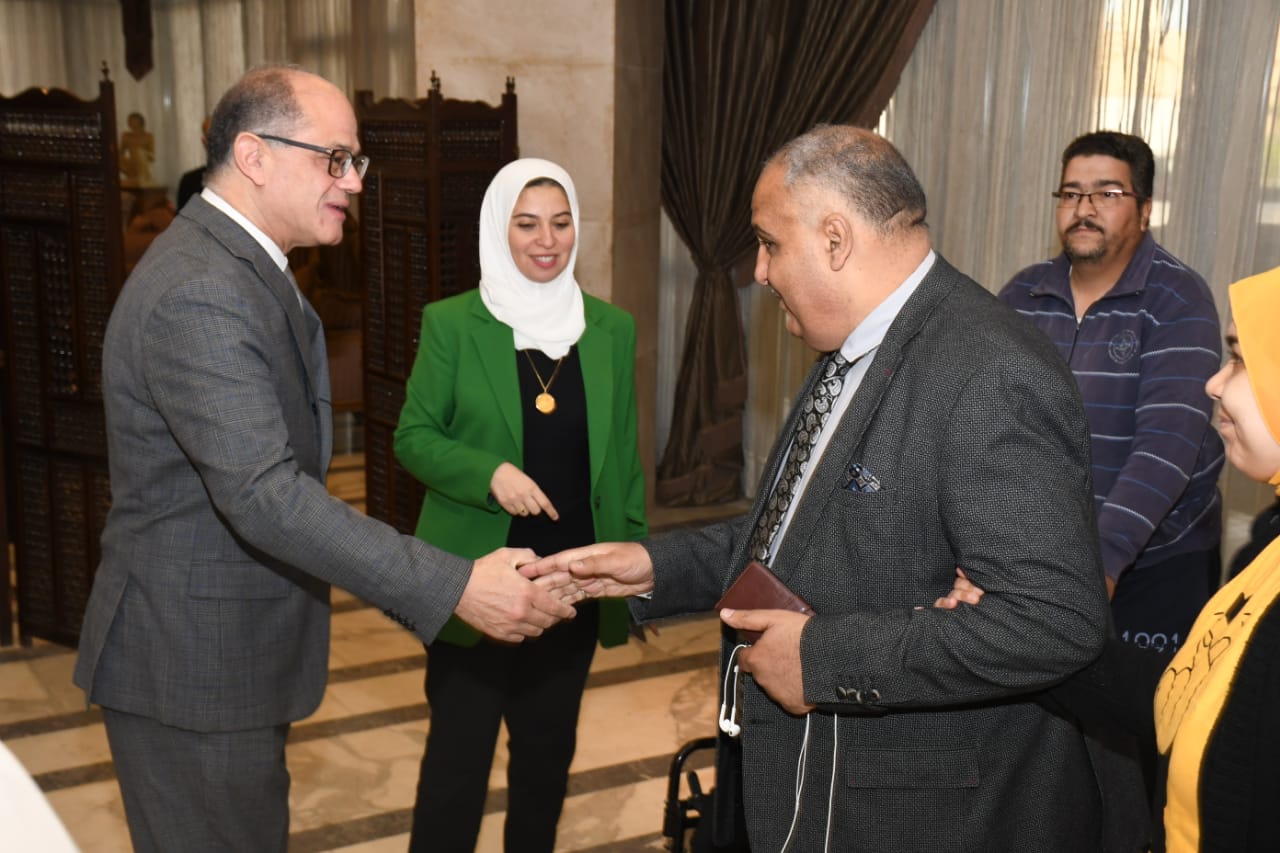 |
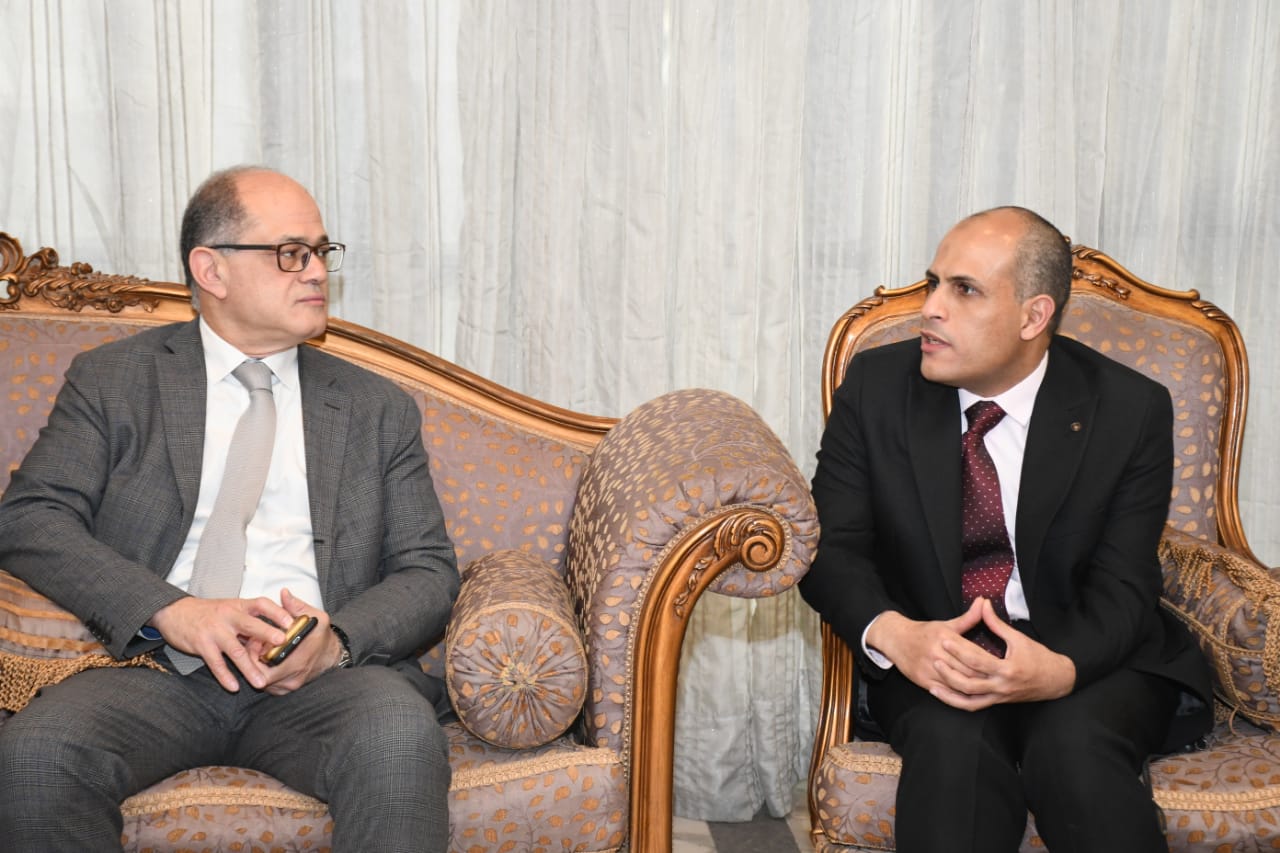 |
 |
||
Dr. Maggie Nassif explained that today is the inauguration of the Fulbright Inclusion and Accessibility Initiative, pointing out that over the course of the Authority's presence in Egypt, which extends for 70 years, there have been graduates of people of determination from the Fulbright Commission's programs, appreciating the cooperation with Ain Shams University headed by Prof. Mahmoud El-Meteini, President of the University in Launching an organized initiative targeting people with disabilities.
She thanked all the participants in the workshop, confirming the Authority's support for students with disabilities through a series of meetings.
She also provided an overview of how to apply for Fulbright grants for people with disabilities.
Dr. Rana Al-Hilali, Director of the Center for Students with Disabilities, indicated during her speech that the center will be the link for the Fulbright initiative and that it is fully prepared to answer all students' inquiries, and their inquiries about scholarships can also be answered via e-mail.
She called on the students to work on preparing themselves and to be keen on obtaining the necessary training for that and acquiring the skills that qualify them to travel, praising the keenness of the education sector and students at the university, led by Prof. Abdel Fattah Saoud for providing all courses in language, computer and using the white stick through the unit.
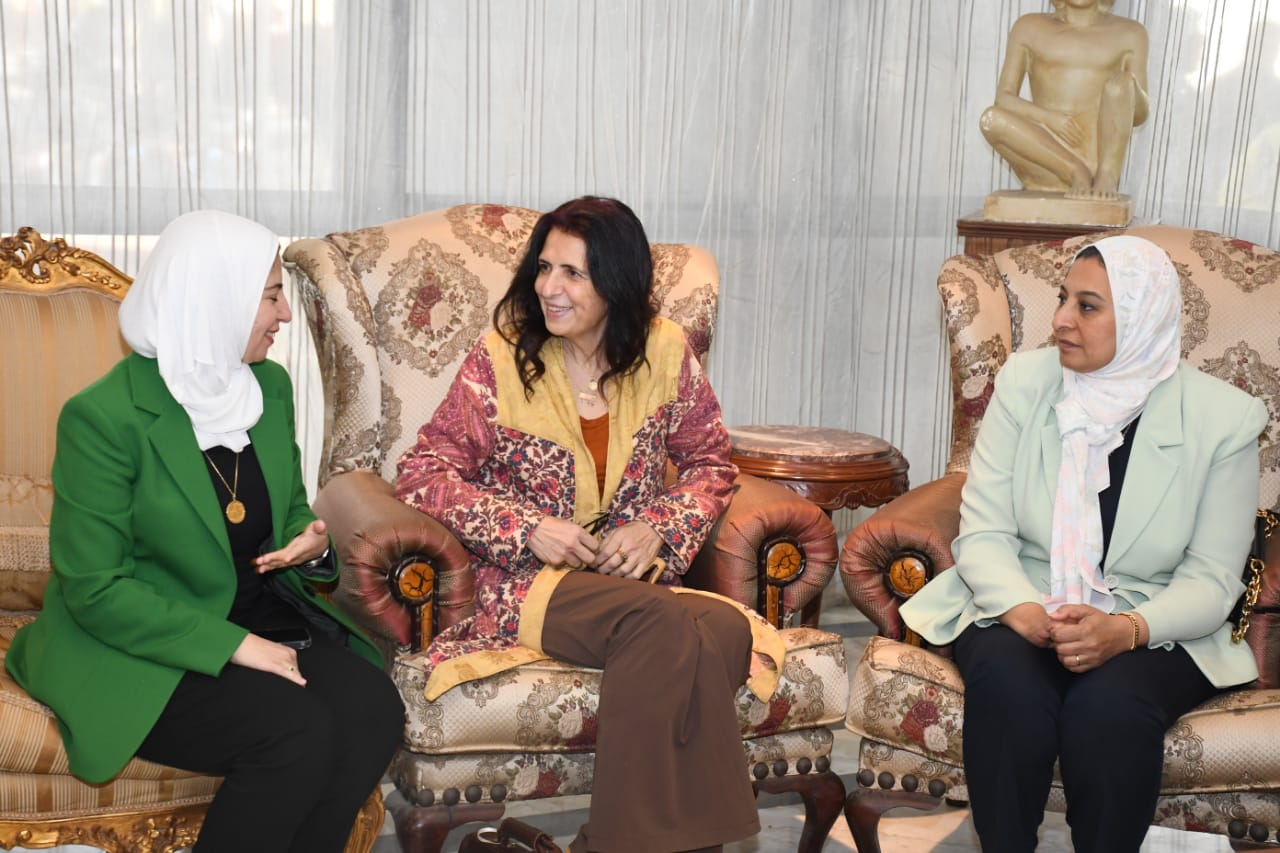 |
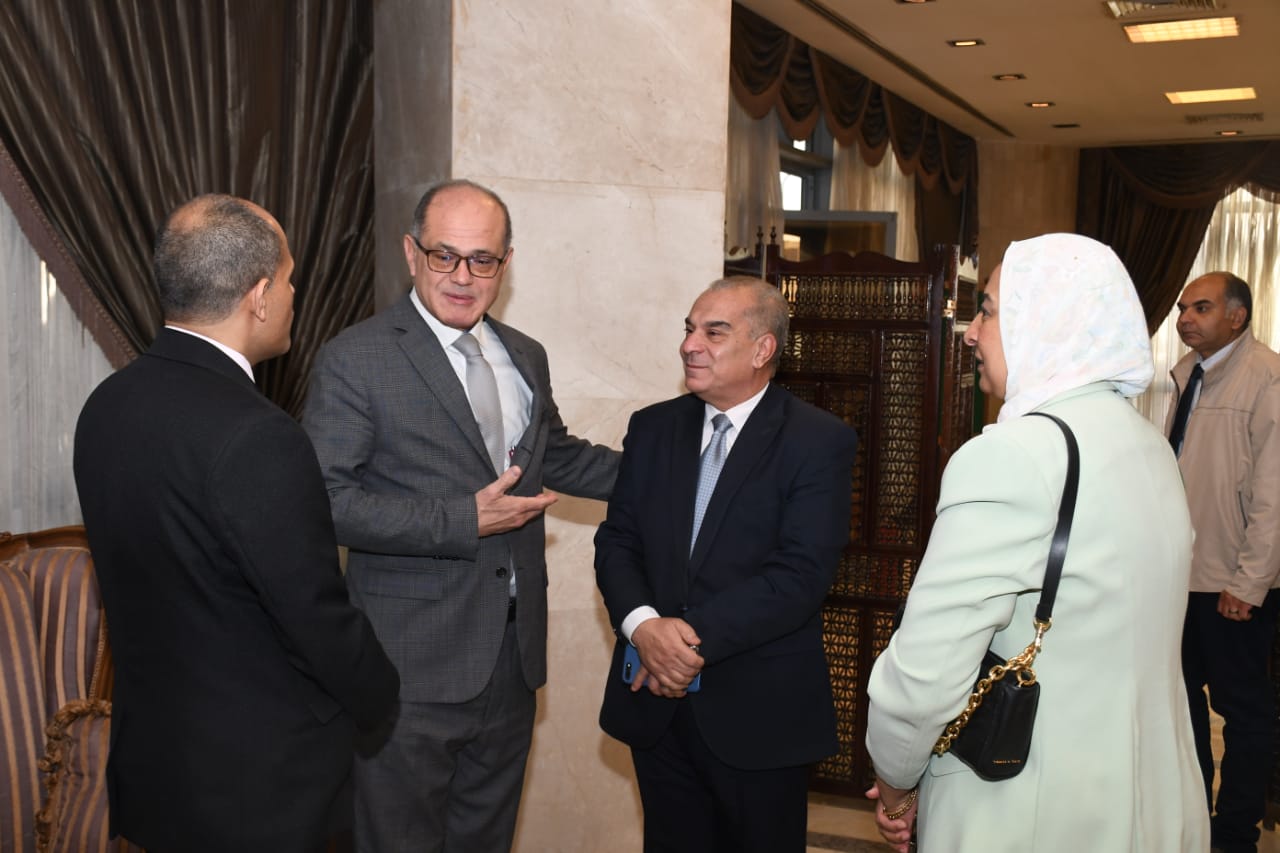 |
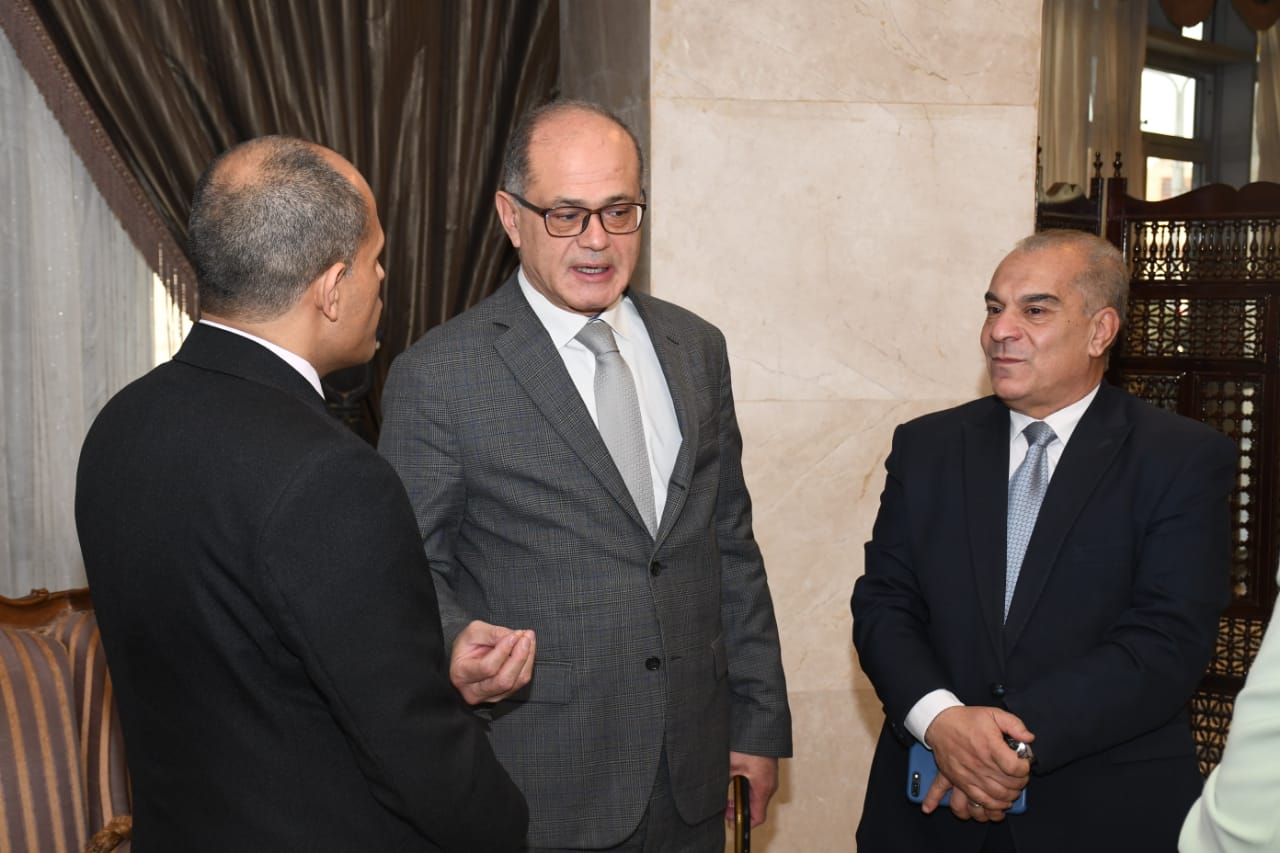 |
||
As confirmed by Prof. Rana Al-Hilali told the students that they can add or suggest any workshops or courses that contribute to providing them with skills that qualify them to travel and obtain grants.
Dr. Ibrahim Emara, a lecturer at Tanta University and the authority’s advisor for integration affairs, talked about his experiences and what he learned in the field of disability, especially visual impairment. Recipient of the scholarship, in addition to traveling on a Fulbright Postdoctoral Fellowship.
Mr. Ibrahim Emara said that he did not find any obstacles in applying for the scholarship, calling on the students to work on preparing themselves if they wish to benefit from the grants.
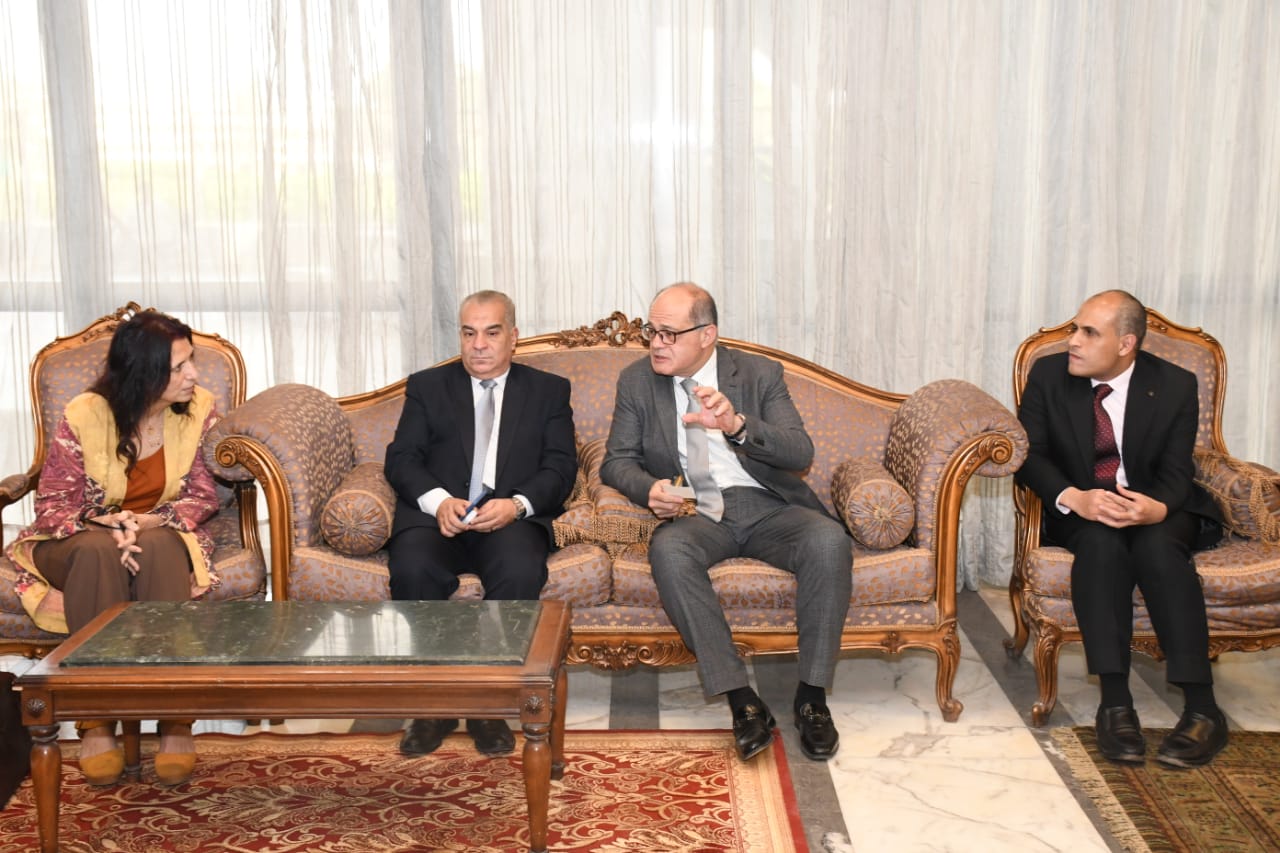 |
 |
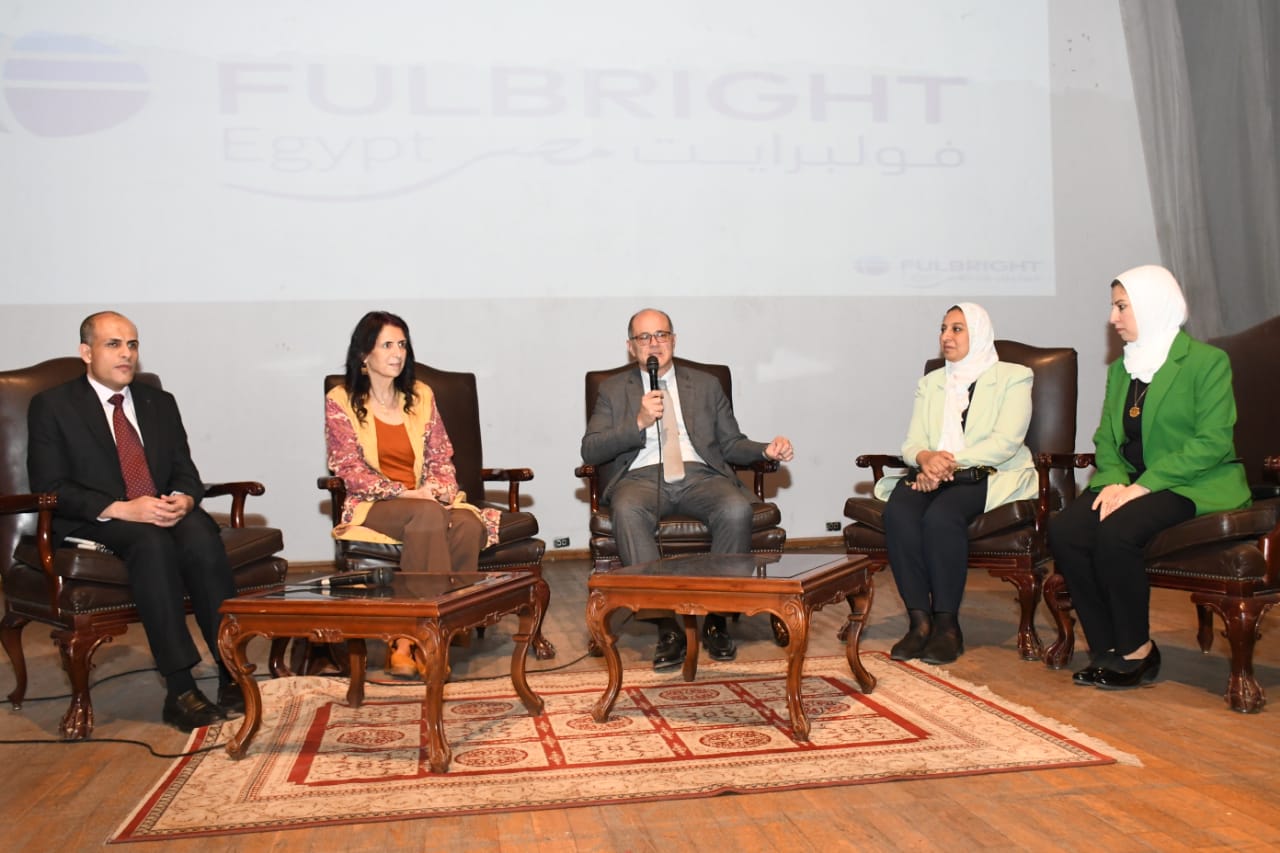 |
||
He asked the attendees about the obstacles and difficulties facing students with disabilities, especially those with visual impairment, from traveling and obtaining scholarships.
The answers indicated that the lack of independence and the need for facilities, especially for people with visual disabilities, and the lack of language ability represent the most important obstacles, in addition to the fact that some grants do not allow the presence of facilities with students with disabilities.
Mr. Aser Hani declared the scholarships for people with disabilities from faculty staff, teaching assistants, students, and employees, and that the required information must be fulfilled in the application form, pointing out that the authority provides scholarships for Egyptian professors and professionals to study, and that it is fully funded in all fields to obtain a master’s degree, in addition to granting research Post-doctoral.
After the meeting, Prof. Rana Al-Hilali accompanied Dr. Maggie Nassif and her team on an inspection tour of the Faculty of Al-Alsun for the equipped electronic examination labs. The tour also included the Rafiq Al-Darb Center in the faculty, and a meeting was held with Prof. Salwa Rashad, Dean of the Faculty, to discuss ways of joint cooperation between the Faculty and the Authority, and to arrange other visits to specialized centers to support people with disabilities.
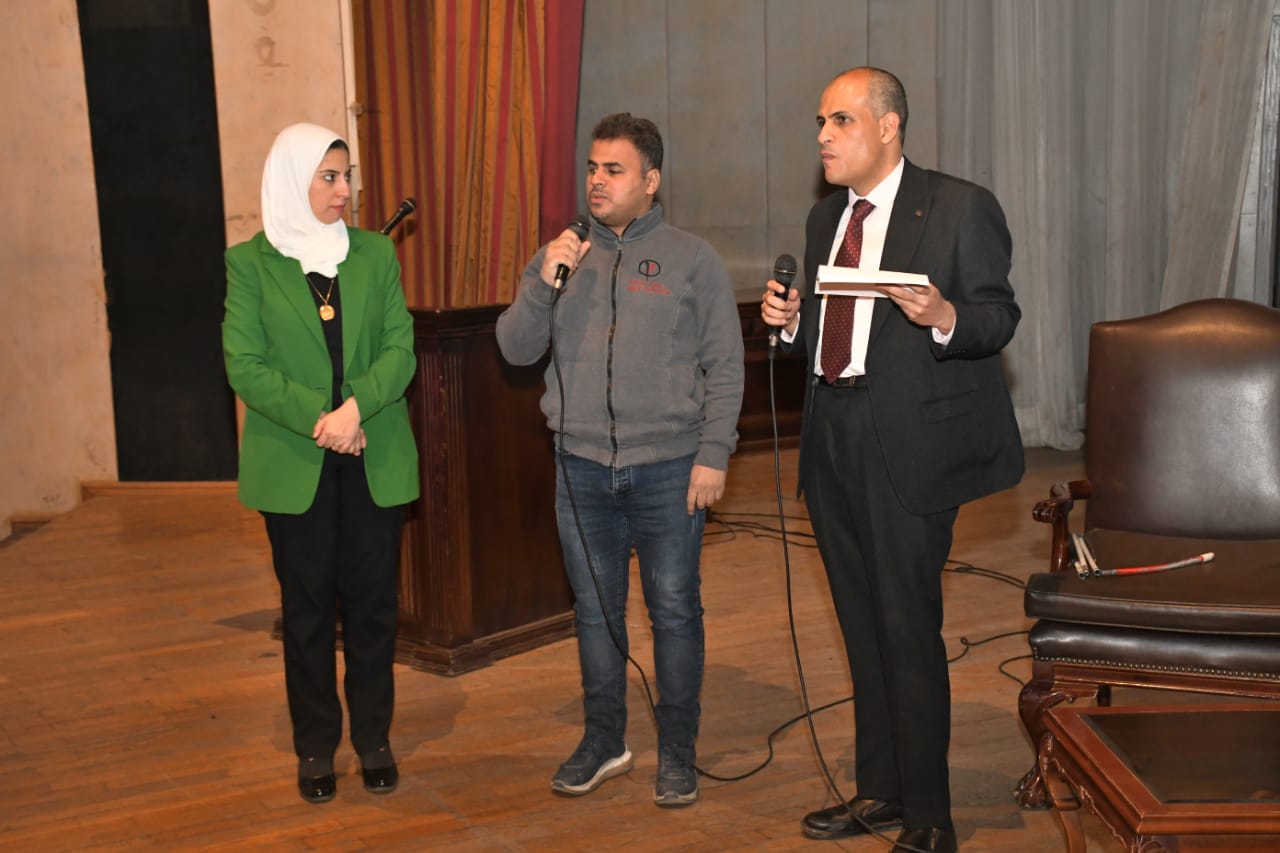 |
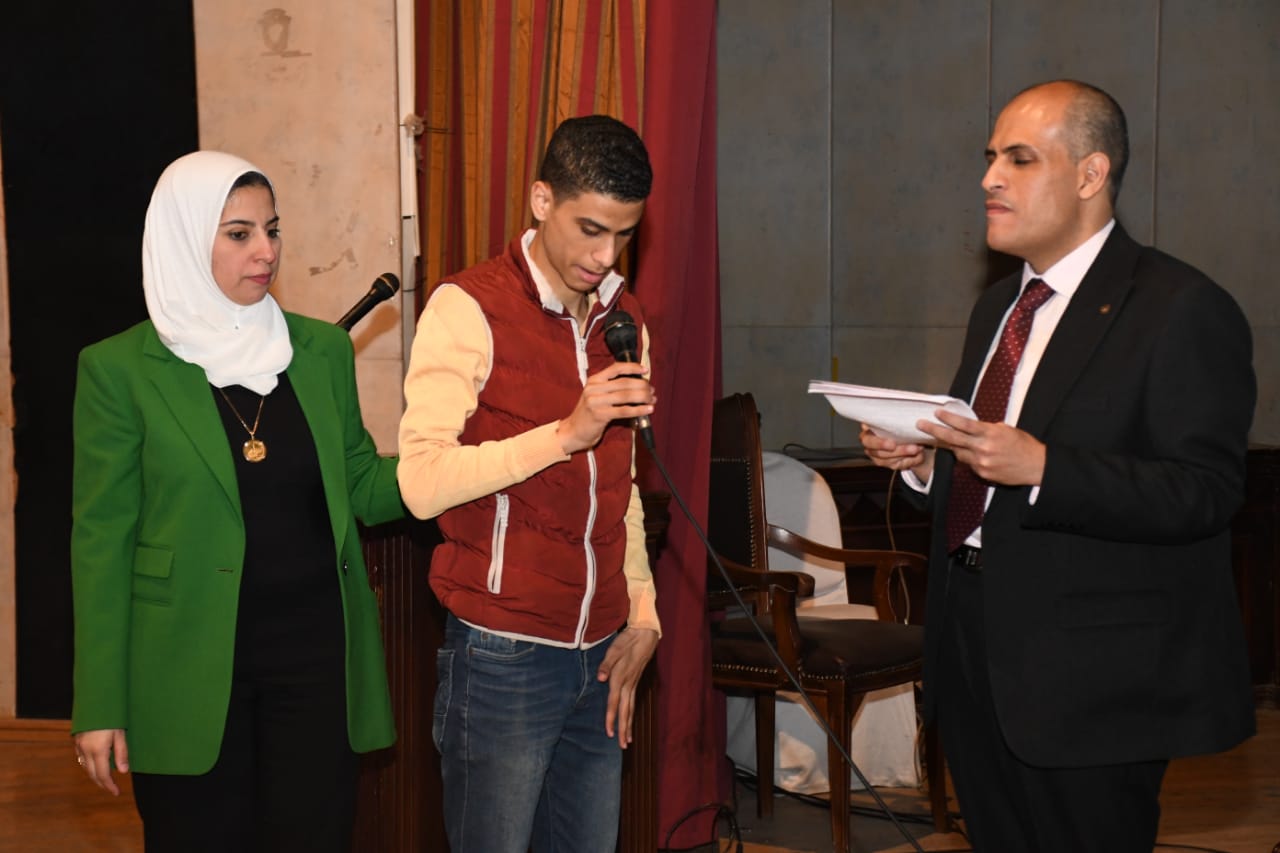 |
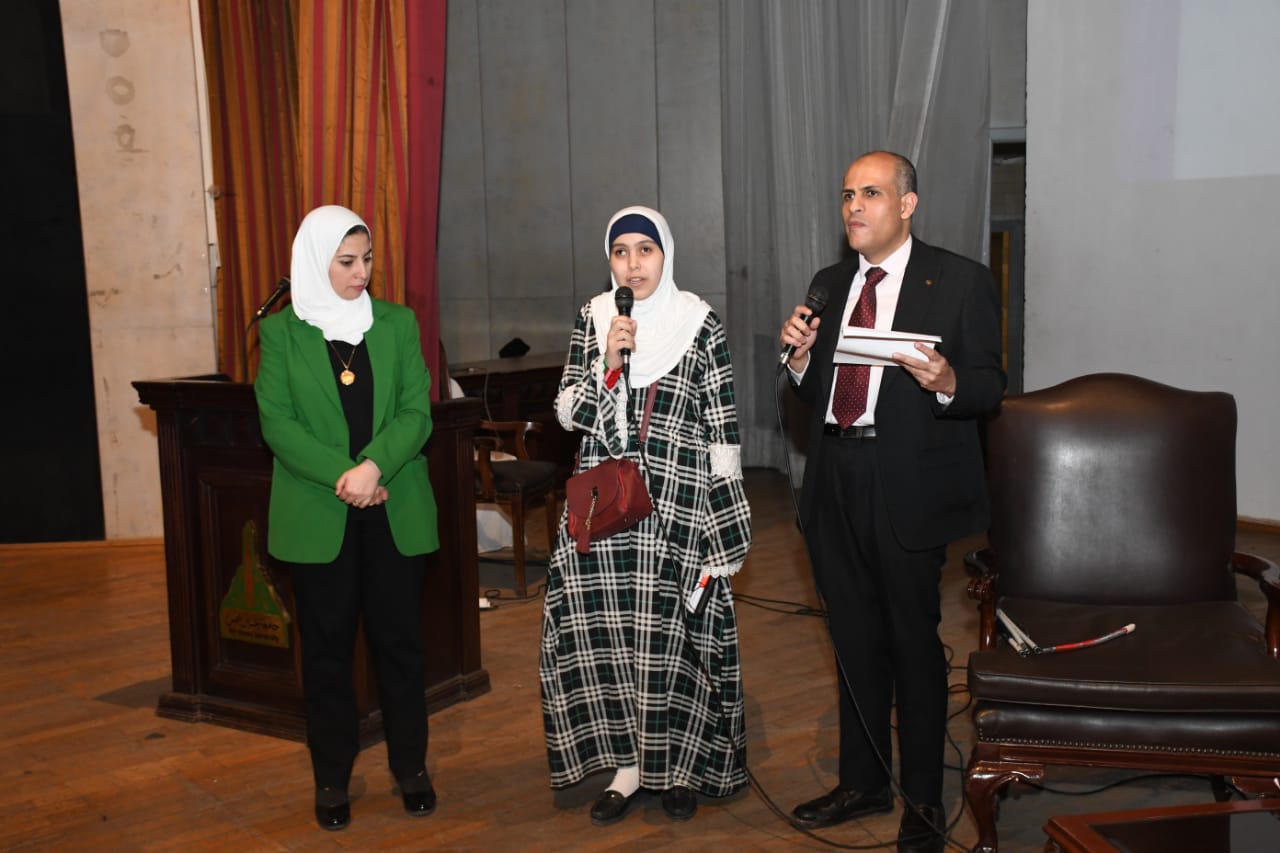 |
||
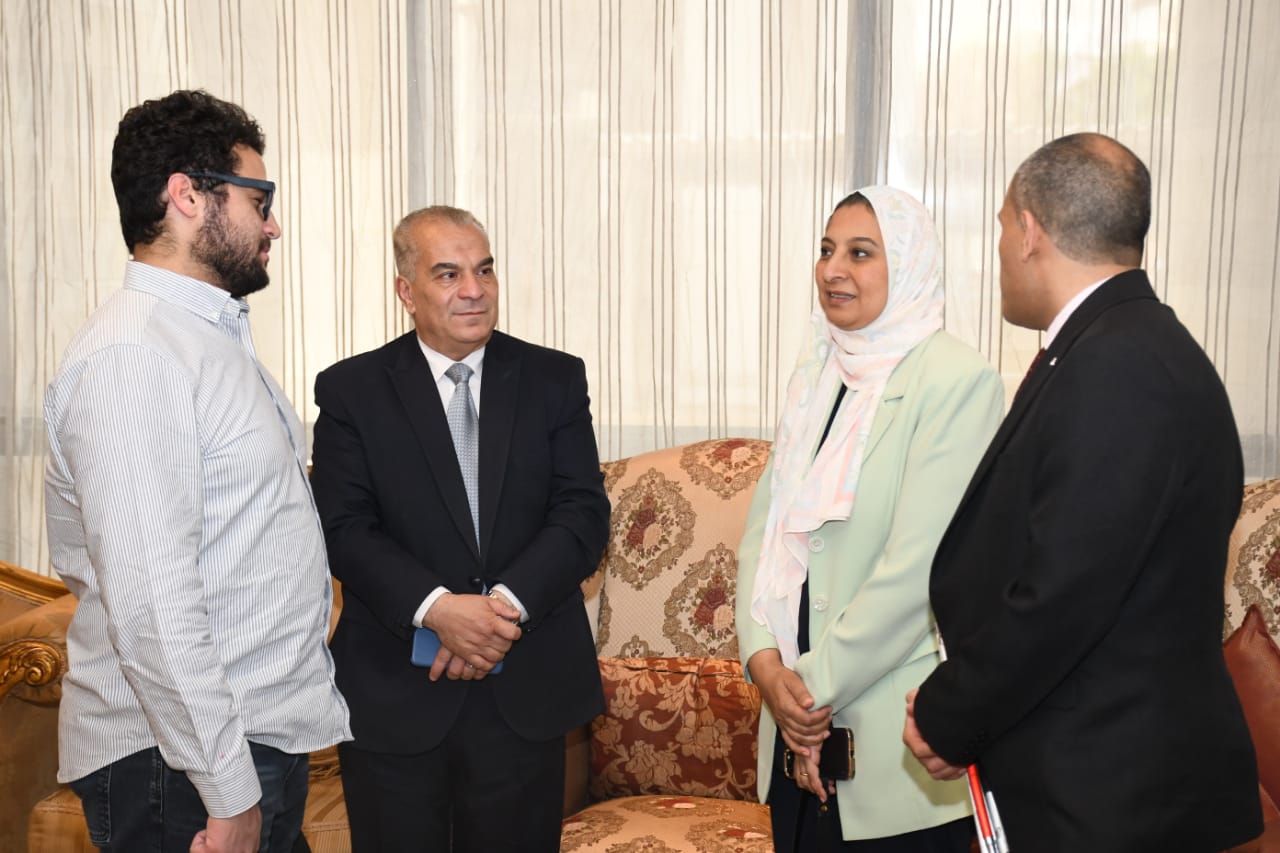 |
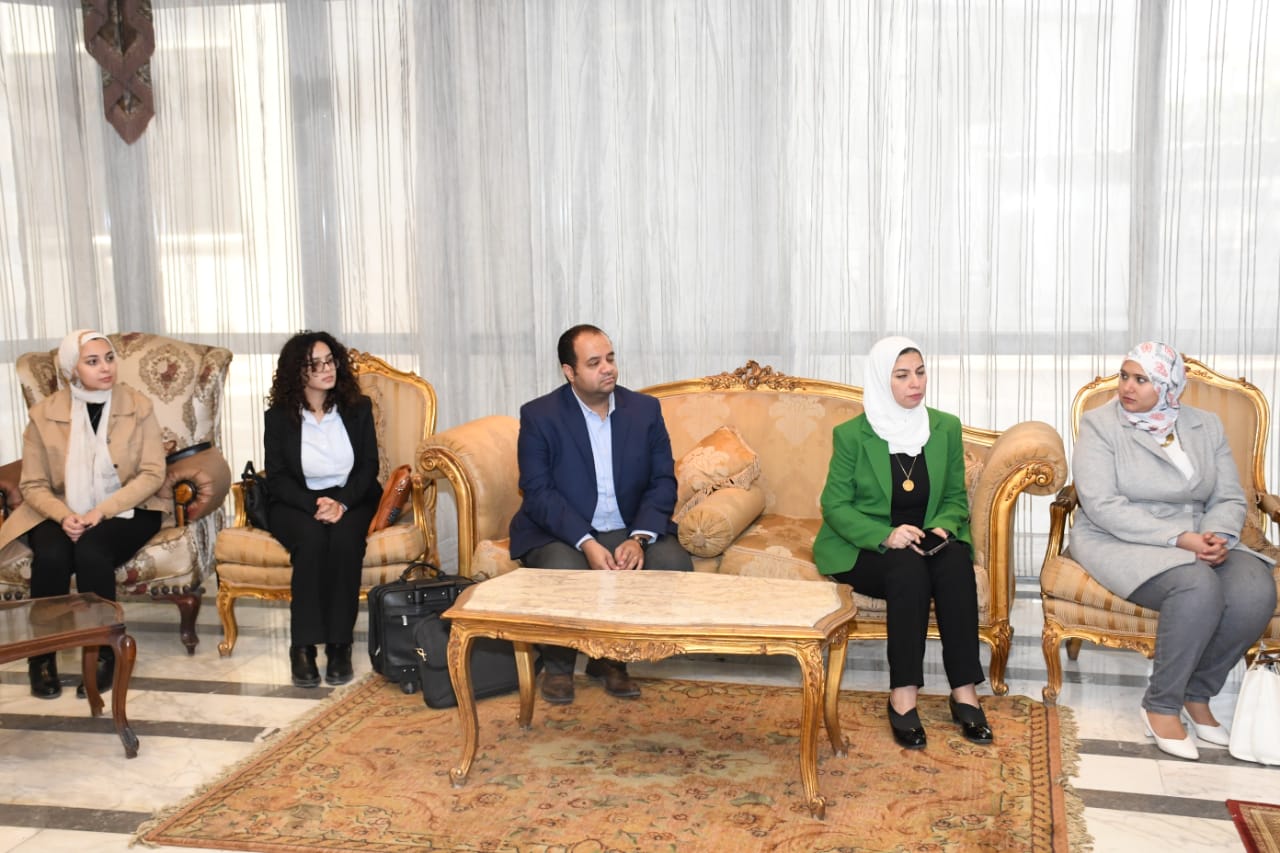 |
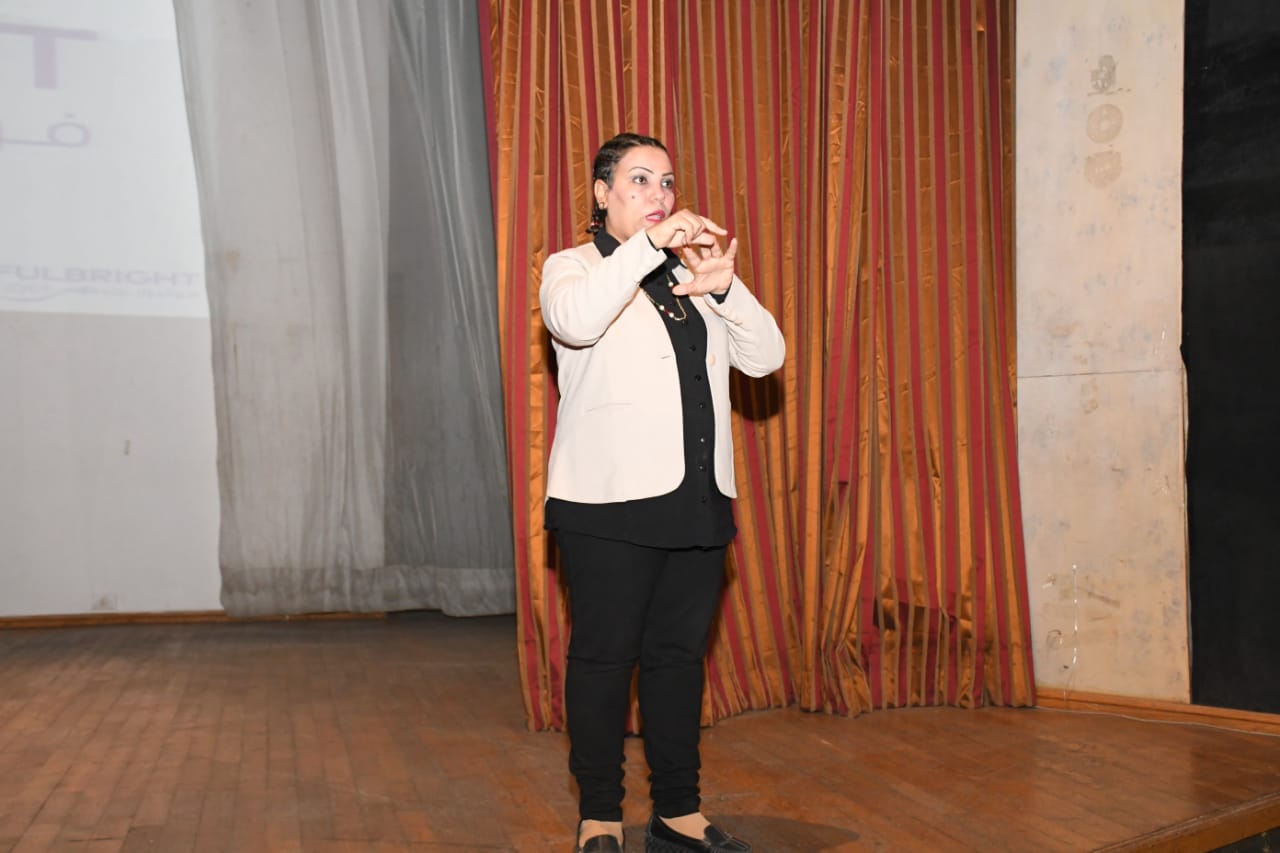 |
||


.svg)




